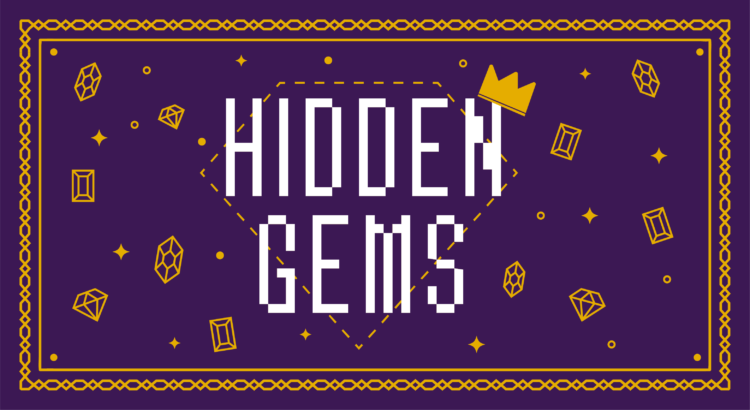Hello, world. Or hello, Michigan. Really just hello to whomever happens to be reading this. My name is Josie, I’m a current senior at UMich studying English and Spanish with a minor in music, and this is a weekly glimpse into the chaos of my mind.
As to why I am writing on arts, ink:
For as long as I can remember I have been most easily able to express myself through written words. I’ve been anavid reader and writer since I was about six years old, and have taken my passion for writing in many directions since then. Poetry, prose, forensics, stage, and screen acting are all avenues I’ve pursued in some way, shape, or form throughout the last fifteen years or so of my life. However, from very early on, one particular way of expressing myself fought its way to the top of my list of passions.
Songwriting.
I first picked up a guitar at age 8 after 4 years of piano lessons. Within a few months, I wrote my first song–a simple 3-chord children’s song I called “Sun is Shining.” (My mom still whistles it while she does house work and such sometimes). From that moment on, I was hooked. I was never a diary kid. I didn’t see the point in writing all my feelings down on a page that no one would ever read except me. So instead, my guitar became my notebook, and my lyrics became my diary. I wrote about what moved me, the things which made me feel emotions strong enough to need to sing about, and people I met along the road of life who helped to change me in some significant way.
 (9-year-old me)
(9-year-old me)
When I was feeling lost in middle school, I wrote a song called “The Road to Nowhere.” When I was facing challenges in high school I wrote a song called “Wings” whose chorus read “I will take my wings / and I will learn to fly / so if I ever fall / I’ll fall knowing that I tried.”
(The picture below is from a small concert I gave at a local sub station where I played a few of my original songs for the first time. It was one of the moments I can remember which solidified in my mind that music was the one thing which could make me truly happy.)

I wouldn’t be an angsty young adult if I hadn’t written some sappy young love songs too. My relationships have forever been immortalized in the words of an embarrassingly long Word document of songs on my computer.
But why is music so important to me?
In the words of the introduction to the book I wrote on musical role-modeling in high school, “Music has gotten me through the good times, the bad times, the horrible times, and all the times in-between. It’s been something I can fall back on when life gets hard, and it’s led me to some of the most amazing people I’ve ever met, and I’ll ever know. It’s created opportunities for me of which I wouldn’t have had otherwise, and has always managed to put a smile on my face. It’s a part of me I wouldn’t trade for the world. Music nurtures, it teaches, and it grows inside a person until it’s an irremovable part of you. It allows you to believe more firmly in yourself, and helps explain so many situations of which you otherwise couldn’t explain. It’s a feeling you get deep inside—a joy of sorts that reassures you no matter how bad things may seem—how sad the song—those things will resolve. They’ll end on a happy note.”
My biggest role model growing up was my choir director in high school, Mr. Brusubardis. He was famous in our Wisconsin small town for saying really deep, intelligent things to his students. In fact, somewhere I still have a poster my friends and I made my senior year of our favorite quotes of his. But the one thing I remember him saying constantly was that music is a universal language. You can sing in English, Spanish, Greek, Yiddish, or complete nonsense syllables, and people will be able to understand what you’re trying to tell them through the emotion you put into the performance. In many cases, you don’t have to know which are the ‘right’ words to sing when you perform a song. You don’t have to spend hours painstakingly picking out the perfect words; you can just let go, be in the moment, and share what you feel inside with other people. Even if they cannot literally understand you, they will emotionally.
Because of this fact, I would like to welcome you to my 2020/2021 arts, ink blog: Can’t say it? Sing it.
I’ll be posting about the songwriting process, sharing some of my own work, perhaps featuring other writers I know, and doing my best to relay meaningful information about music I’ve had the pleasure of learning in the last few years of my life.
I had the opportunity to work and learn within SMTD as a voice major my freshman year before switching to a music minor, have done workshops and masterclasses with relatively well-known musicians, and have spent over 12 years now crafting my own personal songwriting style. I also have participated in choral groups, 20+ musical theatre productions, and Michigan A Cappella for 4 years now. I’d be happy to answer any questions about any of my experiences!
Thanks for taking the time to read my slightly-long-winded introduction, and I look forward to posting in the weeks to come!




 I cannot begin to explain how excited I was for Nectar to be released on September 25th. Originally scheduled to be released in early July, the project was pushed back due to the COVID pandemic, much to my dismay. The first single from the album was Sanctuary, which was released in June of 2019: that’s how long I’ve been anticipating this album. I have followed the career of Joji (the stage name of George Miller) since he was a YouTube creator, and I watched as he built a cult following in the music industry with simple lo-fi tracks that were authentic and intimate. A lot of fans are drawn to the personality and charm he displays in his music, which I can’t deny is infectious. Needless to say, I preordered Nectar and listened to it the minute it was released. At 18 songs and 53 minutes it’s an incredibly substantial album, covering a lot of musical ground and showcasing the unique qualities of Joji’s musical style. Having listened to it countless times already, I can verify it as a hidden gem: it is well-rounded, musically intriguing, and unbelievably catchy. Here are a couple of my favorite moments from the album, which I think demonstrate what makes this album and Joji so special:
I cannot begin to explain how excited I was for Nectar to be released on September 25th. Originally scheduled to be released in early July, the project was pushed back due to the COVID pandemic, much to my dismay. The first single from the album was Sanctuary, which was released in June of 2019: that’s how long I’ve been anticipating this album. I have followed the career of Joji (the stage name of George Miller) since he was a YouTube creator, and I watched as he built a cult following in the music industry with simple lo-fi tracks that were authentic and intimate. A lot of fans are drawn to the personality and charm he displays in his music, which I can’t deny is infectious. Needless to say, I preordered Nectar and listened to it the minute it was released. At 18 songs and 53 minutes it’s an incredibly substantial album, covering a lot of musical ground and showcasing the unique qualities of Joji’s musical style. Having listened to it countless times already, I can verify it as a hidden gem: it is well-rounded, musically intriguing, and unbelievably catchy. Here are a couple of my favorite moments from the album, which I think demonstrate what makes this album and Joji so special:


